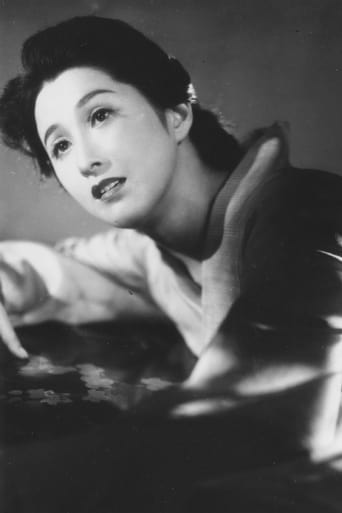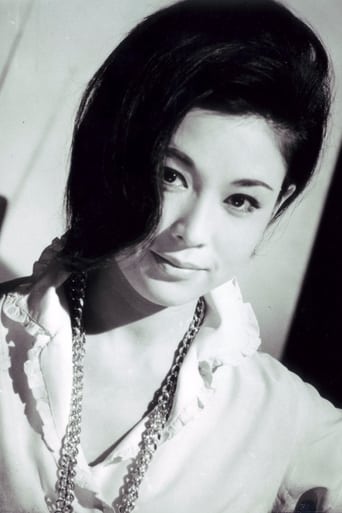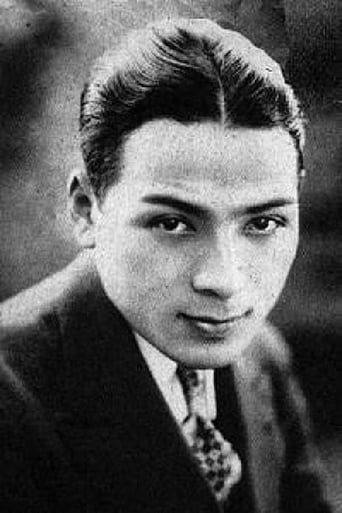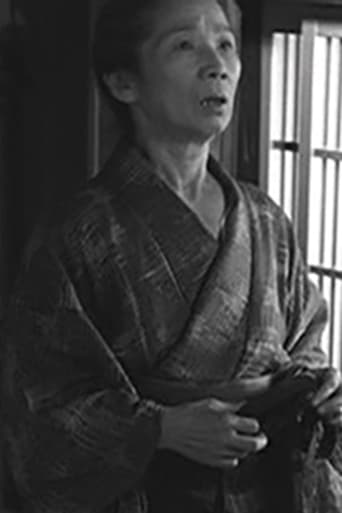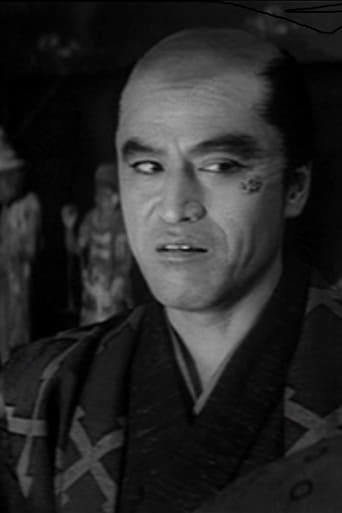Vashirdfel
Simply A Masterpiece
Bea Swanson
This film is so real. It treats its characters with so much care and sensitivity.
Candida
It is neither dumb nor smart enough to be fun, and spends way too much time with its boring human characters.
Dana
An old-fashioned movie made with new-fashioned finesse.
lreynaert
This movie by Kenji Mizoguchi treats one of his favorite themes: the living conditions of the geishas, here in modern Japan.The main character in this movie is a maiko (a young apprentice geisha), sponsored by an older 'sister'. After becoming herself a geisha, the maiko doesn't accept the former rules of the game anymore. She doesn't want to sell her body to anyone or everywhere. On the other hand, the madam of the geisha house doesn't like to lose important customers. At the same time, her 'older sister' becomes an important pawn in a corruption case. A customer of a company refuses to sign a major contract, a matter of life or death for the company, if he doesn't get the geisha's favors and become her 'protector'. She has to choose between her material and her emotional (sexual) interests.This intimate film is a critical analysis of the status of women in a Japanese society dominated by males, who believe that everything is permitted, especially with women who are bound by debts to their houses and their bosses. Kenji Mizoguchi directed this movie impeccably. Highly recommended.
GyatsoLa
Another fine contemporary movie from Mizoguchi, as so often with his films, focusing on womens lives. This is a partial remake of his earlier 'Sisters of Gion', although the commentary in my Masters of Cinema DVD version suggests that the studio made him tone down the original script as they did not want their new star, Ayako Wakao, to play a 'bad girl' as was originally intended.The film is set in the mid 1950's, as the traditional Gion Geisha quarter in Kyoto is under pressure from the massive changes in Japan at the time. Old traditions are dying, there is greater pressure for the girls to indulge in what is essentially prostitution. Both customers and young geisha are less interested in the old formalities. A young girl, the daughter of a geisha and a failing businessman begs an older geisha to take her on and train her. The girl has a funny mixture of ambition and dignity, proud of her status (she insists on wearing her full geisha outfit even to a regular bar), while refusing to 'do what is necessary' with a rich patron. The older woman is caught between her desire to protect the girl and the economic necessities of the time. The 'sisterhood' of Gion - the older, dominant Geisha, use their influence and power to put huge pressure on her to call the young girl to heel.There are some indications that Mizoguchi's heart wasn't entirely in this film. It is shot quite conventionally by his standards and lacks his trademark visual skills and experimentation. But it is beautifully acted by the whole cast and the insight into the lives of the geisha at the time appears very convincing and real (who can say for sure if it is or not?). It isn't quite as good as his later 'Street of Shame', but its still a fine film and well worth watching.The Masters of Cinema version (region 2) version that I saw sell it as a 'double DVD' with the brilliant Sansho the Bailiff. The whole package is superb, well worth buying.
heliotropetwo
There may be an element of atonement in Mizoguchi's films about exploited women. It is most powerful in "Street of Shame" but plays a role in "Gion bayashi" as well. The exploiters are bad indeed, though Mizoguchi gives them humanizing motivations; the exploited, while not too good to be true, are much better than most of the people I know.What makes this visually beautiful film unforgettable and worthy of repeated viewing is, first, the evolving relationship between Older and Younger Sister, which is sufficiently imitative of life to satisfy the most rigorous champion of Kurosawa's "Lower Depths." As life happens, these two women evolve. It is this evolution which is the secret heart of "Gion Festival Music." Second, importantly, it is the nuanced, understated, but heroic performance of Michiyo Kogure as Miyoharu. Her artistry becomes manifest when her character portrait here is compared to her equally successful role of Taeko in Ozu's "Flavor of Green Tea over Rice," made the year before. The two women could not be more different, and she accomplishes the differences with bare flickers of change across her face and almost imperceptible alterations in body language.These qualities inspire me to forgive the overly schematic plot and excessively contrasting portraits of the very good and the very bad.At the end "Gion Festival Music," "A Geisha," or whatever title translation one wishes to use, is not principally about the cruel exploitation of women. The film has a secret. It is a love story. And I love this movie.
fwmurnau
I liked this better than the more schematic SISTERS OF THE GION. This story of an established geisha who takes on a younger one as a sort of apprentice has engaging characters and a quiet, low-key, intimate realism that's highly effective.Since it's Mizoguchi, you know the direction, casting, lighting, sets, framing -- all the mise en scene -- are exquisitely sensitive and artistic. The acting is excellent, subtle and believable. Everything is "right", one might even say "perfect" -- an adjective one is tempted to apply to this director's work at its best. Every shot is beautifully, often breath-takingly conceived and executed.The glimpses this film gives of the rigorous training and daily life of traditional geishas are a big plus that adds greatly to its interest.Mizoguchi made poetry with a movie camera, and I would call A GEISHA one of his best films.

